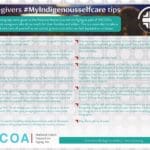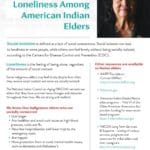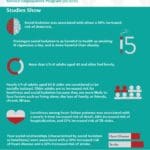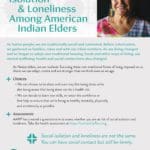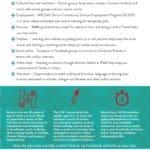For Caregivers
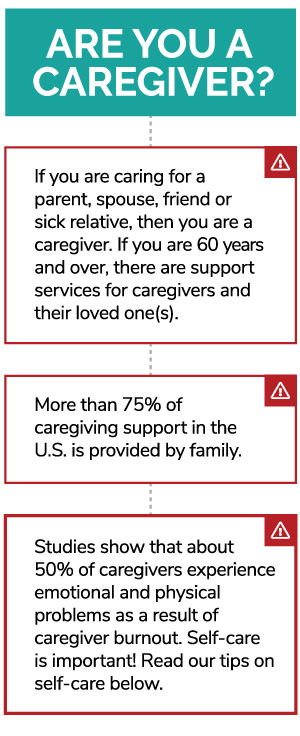 As people live longer, the caregiving needs of American Indian and Alaska Native elders is becoming an issue of increasing importance. They took care of themselves and our families and now they need our care.
As people live longer, the caregiving needs of American Indian and Alaska Native elders is becoming an issue of increasing importance. They took care of themselves and our families and now they need our care.
Tending to the activities of daily living are not the only considerations when caring for a Native elder. A basic understanding of the cultural beliefs and values of American Indians and Alaska Natives can enable caregivers (who are outside the family) to more effectively and respectfully interact with Native people to the benefit of the elder and caregiver alike.
Support and Resources
Caregiving is a big job. It may start out as dropping by after work to cook a meal or clean the house but could quickly evolve into scheduling medical appointments, monitoring medications, handling finances or legal matters and more. Providing such a broad range of support can be overwhelming. But you are not alone.
Caregiver Self-Care
It’s important to recognize the toll that caregiving can have on a caregiver. Often, family caregivers feel they should handle their roles on top of demanding employment and life schedules. An example is the ‘sandwich generation’ where a caregiver is employed and also takes care of two generations – a child or children and an elder. But sometimes the demands are heavy and caregivers become exhausted and stressed, especially after the onset of COVID-19 and stay-in-shelter orders in many of our tribal communities.
Caregivers also typically take on added responsibilities, such as elders’ finances and cleaning, and working with other professionals, such as healthcare providers and lawyers. Not only do they have to deal with the day-to-day reality of caregiving, they may also deal with feelings of loss and sorrow over their loved ones diminished capabilities and the time it takes away from their other responsibilities.
Being a caregiver takes time, work and energy and often caregivers tend to neglect their own physical and emotional health. Remember, it is not selfish to focus on your own needs when you are a caregiver – it is important to take responsibility for your own self-care. You cannot give from an empty plate.
Tips on Self-Care:
- Ask for help & take breaks or time off
- Let go of guilt & be kind to yourself. You are doing the best you can for everyone.
- Get proper rest and nutrition
- Exercise regularly
- Learn to manage stress – identify triggers & what you can control and can’t change
- Join a caregiver support group in your community or online
- Don’t be afraid to say “No”
- Ask for flexibility at work
- Take time for prayer or time alone to reflect on the positives in life or things you are grateful for. You may even want to create a gratitude journal.
- Smudge, or burn sweet grass or cedar
- Treat yourself – You deserve it!
- Make time for hobbies, outdoor or traditional activities, such as drum-making, ribbon dress making, dancing, baking, cooking or gathering traditional foods
NICOA also has several resources to help Indigenous caregivers:
- Best Programs for Caregiving
- Caring For Those Who Care: Meeting the Needs of Native Caregivers
- The Savvy Caregiver in Indian Country Trainer’s Manual
- Native Caregiving Videos
- Addressing Unmet Family Caregiving Needs in Diverse Older Communities
- Caregiver’s Corner
There are support services available to people ages 60 and over and their caregivers:
- Area Agency on Aging – Your local AAA can typically help connect you to services such as home-delivered meals, transportation, adult day care centers, care management, and more.
- Respite – Respite care is temporary institutional care of a sick, elderly, or disabled person, providing relief for their usual caregiver. More info here: https://www.nmhealth.org/publication/view/policy/3944/
- Title VI – If your community has a Title VI program, you may be able to apply for Native American Caregiver Support Services that are offered through the Administration on Aging to help support and create caregiving program on reservations or tribal lands. The program, which is listed here, offers such services as information, outreach, access assistance and individual counseling, support groups, training and respite care. For more information, go to: https://www.eldercare.gov
- Long-term Services and Supports – NICOA has created a website, LTSS Compass, which lists the different needs and services among American Indian and Alaska Native elders, including in-home care, adult day care centers, disability housing, nursing homes that address such illnesses or conditions as diabetes, and elders living with disabilities and Alzheimer’s.
- International Association on for Indigenous Aging (IA2) – Information for Native elders and their caregivers on brain health, including Alzheimer’s disease, respite care information and respite grants available for Native American families.
Other resources:
- ARCH NationalRespite Network and Resource Center – archrespite.org
- Caregiver Action Network – www.caregiveraction.org
- Caring Across Generations- www.caringacross.org
- Centers for Medicare & Medicaid Services: Long-Term Services and Supports Technical Assistance Center – www.cms.gov/Outreach-and-Education/American-Indian-Alaska-Native/AIAN/LTSS-TA-Center/index.html
- Daily Caring – www.dailycaring.com
- Family Caregiver Alliance National Center on Caregiving – www.caregiver.org
- National Institute on Aging’s Alzheimer’s Disease & Related Dementias – www.nia.nih.gov/alzheimers
- National Caregivers Library- www.caregiverslibrary.org
- Native Elder Caregiver Curriculum – www.nrcnaa.org/native-elder-caregiver-curriculum
- Today’s Caregiver- www.caregiver.com
- Video Caregiving: A Visual Education Center for Family Caregivers – www.videocaregiving.org
- Women’s Institute For A Secure Retirement: Financial Steps for Caregivers – https://wiserwomen.org/wp-content/uploads/2020/09/financial-steps-for-caregivers-budget-worksheet-9.2020.pdf
How Do You Self-Care?
Thank you for entering our caregivers “How do you self-care?” giveaway. Your tips can be seen on our social media channels, Facebook, Twitter and Instagram, under the hashtag #myindigenousselfcare. And thank you to Dancing Butterfly Naturals for their wonderful self-care kits.
